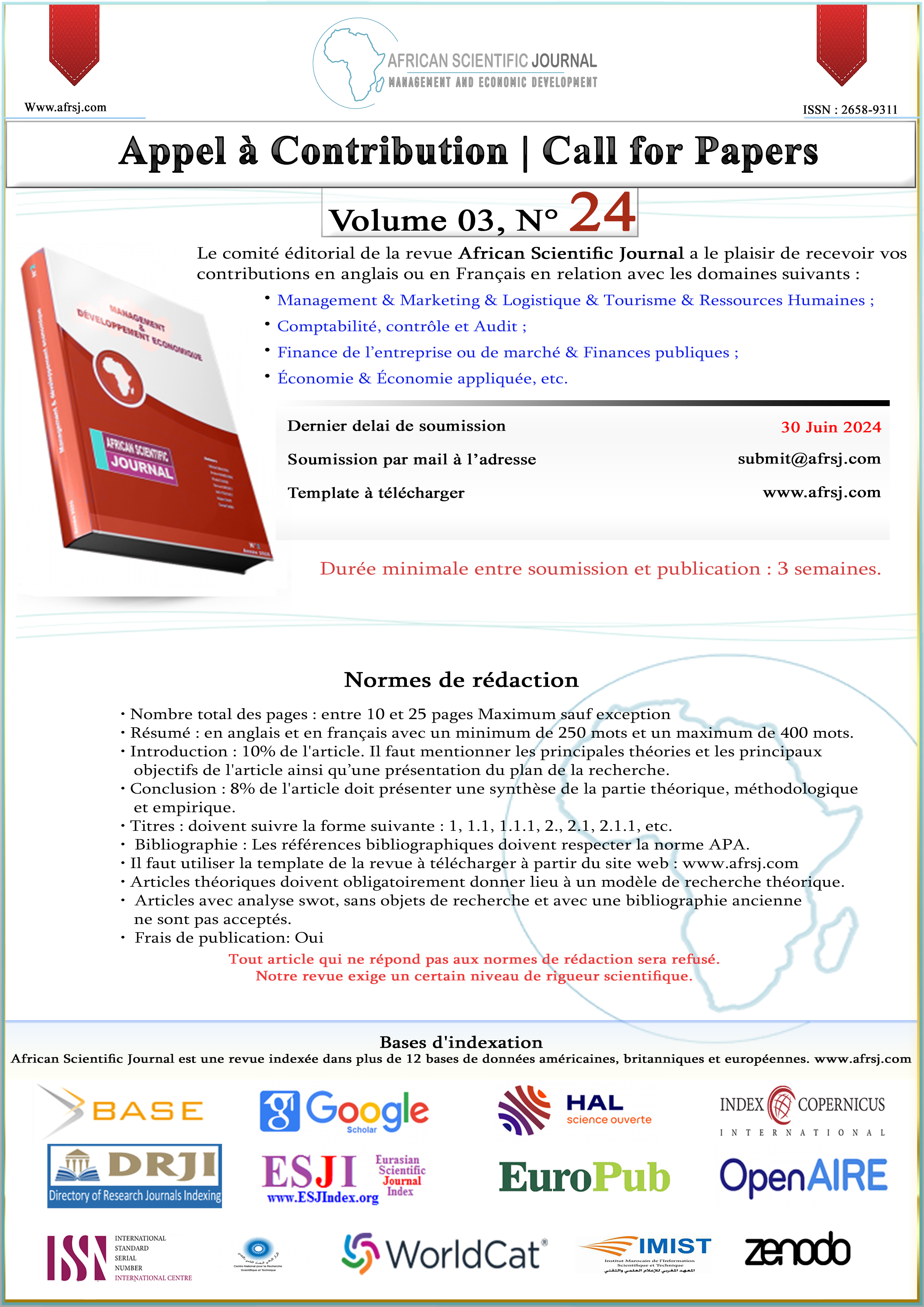The statutory auditor and corporate governance
DOI:
https://doi.org/10.5281/zenodo.8149798Keywords:
Statutory auditor, agency, governance, financial information, stakeholders, shareholders, sincerityAbstract
The statutory auditor plays an essential role in corporate governance, collaborating with other players such as internal auditors and members of the audit committee. As an independent player, he or she helps prevent continuity risks and guarantees the transparency and reliability of the company's financial and accounting information. Its public-interest mission is to certify company accounts, by carrying out an external audit of financial statements to verify their accuracy, fair presentation and compliance with accounting standards. This control strengthens the confidence of stakeholders, notably shareholders, creditors, regulatory authorities and the public. In the context of agency theory, the role of the auditor is crucial in mitigating conflicts arising from the separation of ownership and decision-making. Moreover, the auditor's opinion on the financial statements, as well as the state of governance, have a significant correlation with the company's ability to attract investors. By reinforcing the integrity of the accounts, the statutory auditor helps to reduce the risk of fraud, abuse and manipulation of the figures, thereby strengthening the confidence of investors and the financial market in the company.
The statutory auditor detects and prevents financial risks, promotes transparency and fairness, and protects the interests of shareholders and stakeholders. Our analysis highlights the essential role of the statutory auditor in good corporate governance, underlining the need for him or her to achieve the objectives set in favor of all stakeholders.
In the wake of a series of financial scandals, many countries have adopted legislative measures aimed at reforming the role of the statutory auditor, in order to provide a better framework for its mission. The overriding aim of these laws is to enhance the auditor's effectiveness in protecting the interests of all stakeholders involved. As a result, the statutory auditor is now seen not only as a controller, but also as a genuine partner to the company.
The present work clearly shows that the statutory auditor plays an essential role in corporate governance by supporting internal risk control and assessing preventive measures. He also contributes to preparing the company's future by translating economic reality into accounting terms, and by anticipating the impact of international standards on strategies. As a key player, it offers an independent viewpoint to the Board of Directors, combining control and partnership missions.
Downloads
Published
How to Cite
Issue
Section
License
Copyright (c) 2023 African Scientific Journal

This work is licensed under a Creative Commons Attribution-NonCommercial-NoDerivatives 4.0 International License.



















